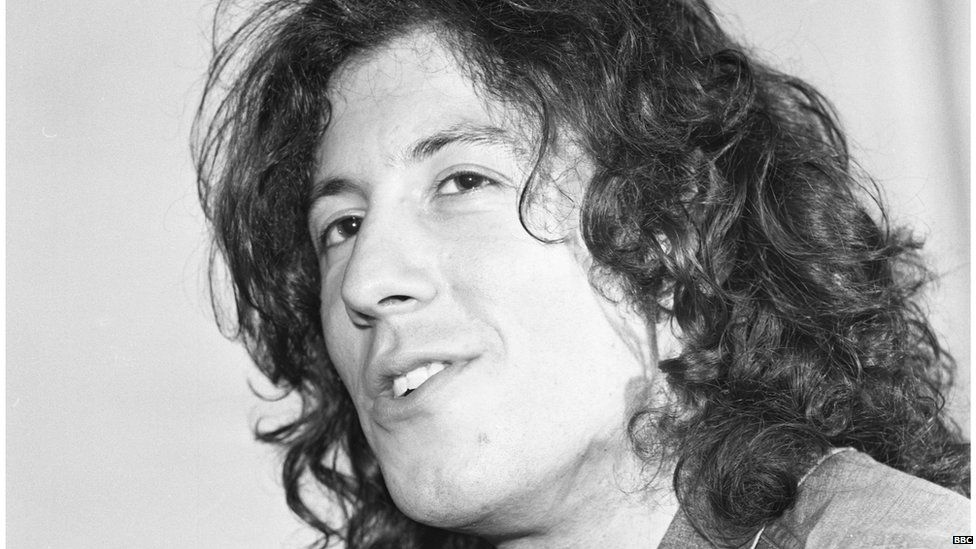Obituary: Peter Green, British Blues virtuoso
- Published

Peter Green, who has died aged 73, was one of the greatest Blues guitarists Britain ever produced.
His shape-shifting riffs and long, improvisational excursions made Fleetwood Mac one of the most exciting live bands of the 1960s Blues explosion.
He first picked up a hand-me-down guitar at the age of 10 and, like many of his peers, began to devour the import vinyl that trickled into the UK from the States. He studied the greats - Muddy Waters, Buddy Guy and BB King - combining their tensely coiled playing style with the shimmering vibrato of The Shadows' Hank Marvin.
But he actually started his professional career as a bassist, until an encounter with Eric Clapton persuaded him to ditch the instrument.
"I decided to go back on lead guitar after seeing him with the Bluesbreakers. He had a Les Paul, his fingers were marvellous. The guy knew how to do a bit of evil, I guess."
He later had the seemingly impossible task of taking over from Clapton in John Mayall's Bluesbreakers. Fans were unconvinced at first, but after a handful of incendiary performances, he won them over, earning the nickname "The Green God".
The musician was humble about his skills, however. "I didn't really know what I was doing on the guitar," he later told Guitarist Magazine. "I was very lucky to get anything remotely any good. I used to dash around on stepping stones, that's what I used to call it."
Mick Fleetwood on the early Fleetwood Mac
In 1967 he poached Fleetwood and bass player John McVie from Mayall and formed Fleetwood Mac - naming the group after its rhythm section.
It was here that his compositional skills came to the fore - creating songs that were tender and truthful, but often with an undercurrent of menace. Black Magic Woman incorporated Latin blues and two exquisite solos, while Oh Well's pounding riffs inspired a thousand metal bands.
But he had been experimenting with acid and became increasingly irrational. His songs became more harrowing and paranoid . After his bandmates rejected a call to give most of their money to charity, he quit in 1970.
The guitarist's mental health deteriorated soon after, and he was eventually diagnosed with drug-induced schizophrenia, spending long periods in psychiatric hospitals and undergoing electroconvulsive therapy.
Green (R) with Fleetwood Mac at a Top of the Pops performance
Speaking to the BBC in 2017, Mick Fleetwood said he wished he'd spotted the signs of Green's illness sooner.
"I wish we had been better equipped," he said "Maybe we could have seen something that could've helped - not to keep him in the band, but to help this person through the beginnings of a very emotional ride that, really, he's still on as we speak.
"It affected his life in a very dramatic way," he adds. "I don't think he was treated right for what turned out to be his illness, but he's healthy now and doing ok."
Green surfaced from time to time over the next 50 years, most prominently in 1998, when Fleetwood Mac were inducted into the Rock And Roll Hall of Fame. And earlier this year, Fleetwood held a star-studded concert for his friend, accompanied by Pete Townshend, Noel Gallagher, Neil Finn, Steven Tyler and John Mayall.
"I wanted people to know that I did not form this band - Peter Green did," Fleetwood told Rolling Stone. "And I wanted to celebrate those early years of Fleetwood Mac, which started this massive ball that went down the road over the last 50 years."